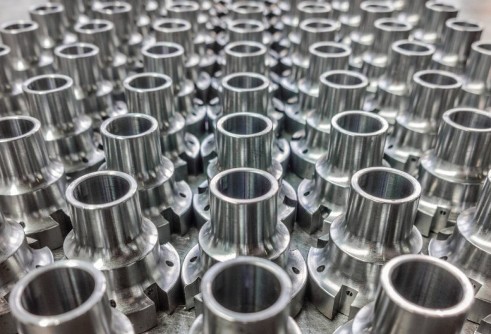Capital letters
In the BIS system of limits and fits, 25 hole deviations are specified by using capital letters
Interchangeability of parts may be obtained by adopting the system of Limits and fits
Interchangeability is normally applied for Mass production.
Interchangeability occurs when one part in an assembly can be substituted for a similar part which has been made to the same drawing. Suppose there are 100 parts each with a hole, and 100 shafts which have to fit into any of the holes. If there is interchangeability then any one of the 100 shafts should fit into any of the holes and the required kind of fit can be obtained.
Hence, for the interchangeability of holes and shafts, we need a system of limits and fits which gives standard values for the limits on the hole and shaft, so that any particular type of fit can be obtained.
Interchangeability is possible only when certain standards are strictly followed.
In universal interchangeability the mating parts are drawn from any two different manufacturing sources. Universal interchangeability is desirable and to achieve this all standards used by various manufactures should be traceable to a single source which will be an international standard.
When all parts to be assembled are made in the same manufacturing unit,then local standards may be followed which is known as local interchangeability. The required type of fit in an assembly can be obtained either by universal or full interchangeability or by selective assembly.

Consumer / user
Standardization
Standardization is the most important factor required to achieve the interchangeability in mass production.
Ensue interchangeability of threaded parts
Threaded components both external and internal are manufactured with thread tolerance. One of the reasons for having thread tolerances is to ensue interchangeability of threaded parts.